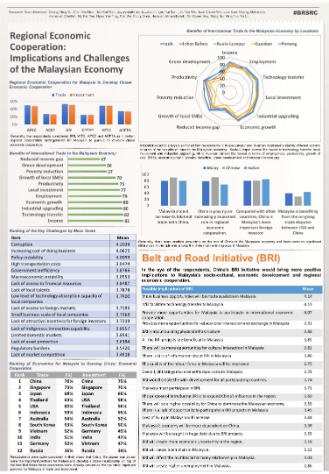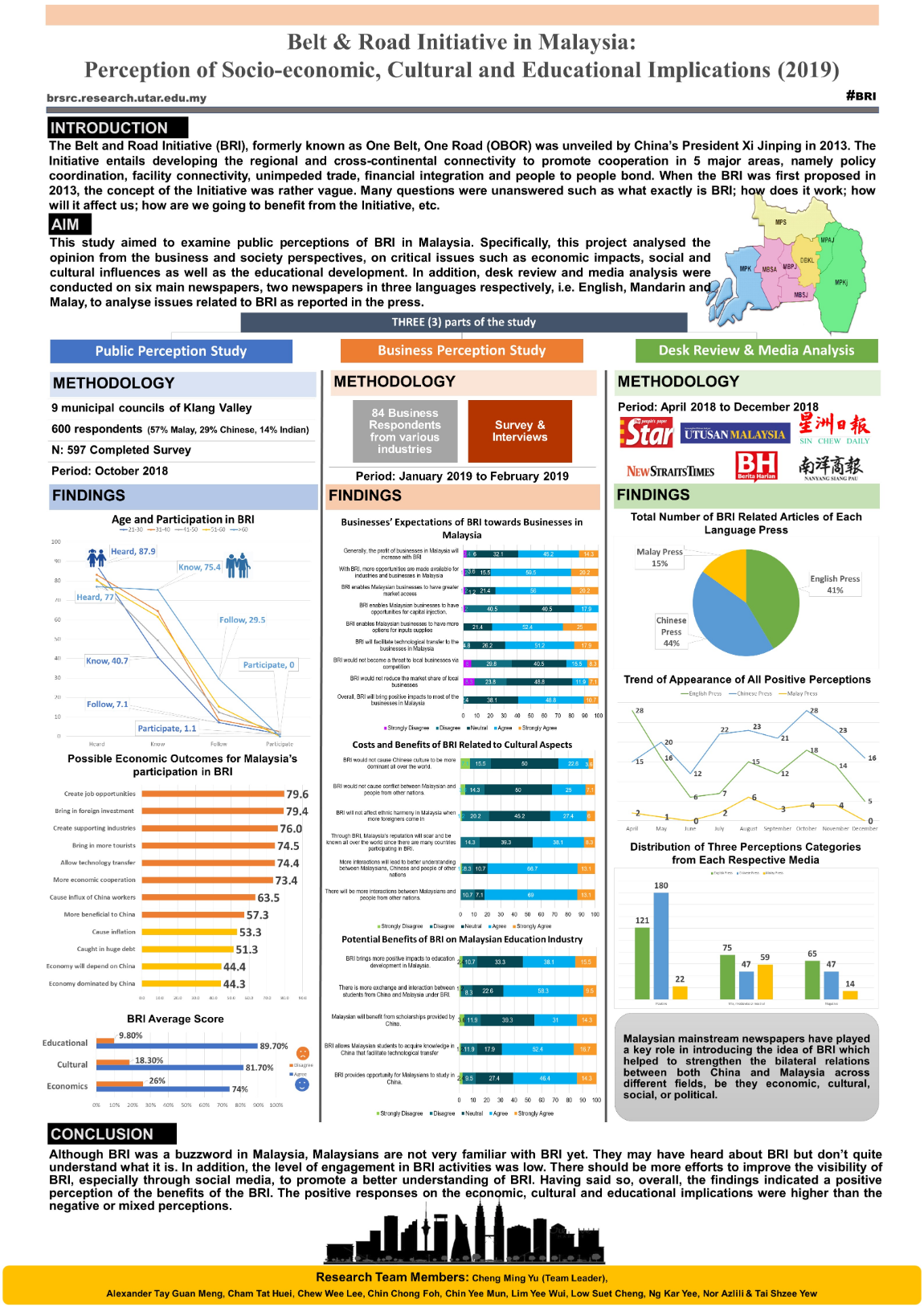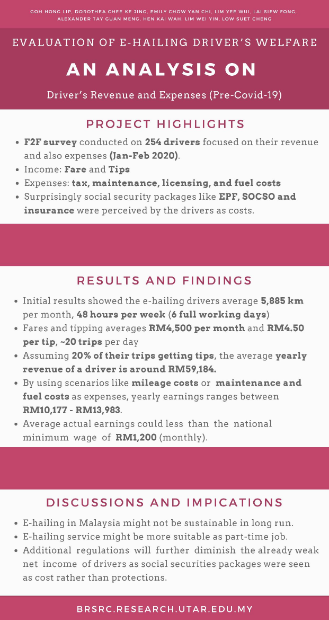
REGIONAL ECONOMIC COOPERATION
REGIONAL ECONOMIC COOPERATION: IMPLICATIONS AND CHALLENGES OF THE MALAYSIAN ECONOMY
The main objective of the project is to analyse the implications of regional economic cooperation on the Malaysian economy. In particular, the study examined the perceptions of the general public on the potential benefits of the regional economic cooperation, the readiness of the Malaysian businesses to participate in regional economic cooperation and the key challenges as well as the opportunities for Malaysia’s participation in regional economic cooperation. The development of BRI has received great attention in Malaysia, hence this study also investigated the perception of the public and business sector on Malaysia’s participation in BRI and the role of China in regional economic development.
By utilising both the primary and secondary data, this study analysed implications of regional economic cooperation to Malaysia’s economy and examined the perceptions of the public and the business sector on the potential benefits and challenges of regional economic cooperation. The econometric analysis highlighted the close relationship between the economies in the region. The findings indicated that generally, Malaysia economic performance is highly dependent on the economic performance of Thailand, Vietnam and Singapore while exports and changes in the exports to China, Vietnam, Cambodia, the Philippines, Thailand and Singapore would have an impact on Malaysia’s GDP. The data collected from the general public and the business sectors revealed that international trade and foreign investment play a significant role in the Malaysian economy. It is important for Malaysia to participate actively in international and regional economic cooperation. China is seen as a strategic partner of Malaysia in recent years, especially after the launching of the Belt and Road Initiative (BRI).

Belt & Road Initiative in Malaysia (2019)
BELT & ROAD INITIATIVE IN MALAYSIA: PUBLIC PERCEPTION OF SOCIO-ECONOMIC, CULTURAL AND EDUCATIONAL IMPLICATIONS
The study was conducted to examine public perceptions of BRI in Malaysia. Specifically, this project analyzed the opinion from the business and society perspectives, on critical issues such as economic impacts, social and cultural influences as well as the educational development. The targeted respondents were businessmen and the general public in Malaysia. In addition, desk review and media analysis were conducted on six main newspapers, two newspaper in three languages respectively, i.e. English, Mandarin and Malay, to analyze issues related to BRI as reported in the press.
The findings indicated that generally, Malaysians are not very familiar with BRI yet. They may have heard about BRI but don’t quite understand what it is. In addition, the level of engagement in BRI activities was low. There should be more efforts to improve the visibility of BRI, especially through social media, to promote a better understanding of BRI. The news coverage in the Malay newspapers was rather limited if compared with Chinese and English newspapers. Overall, the findings indicated a positive perception of the benefits of the BRI. BRI is viewed as an initiative that would benefit Malaysia in its economic, cultural and educational development. At the same time, there were some concerns about the negative implications of BRI. Therefore, most of the respondents thought Malaysia should participate in BRI but cautiously.


